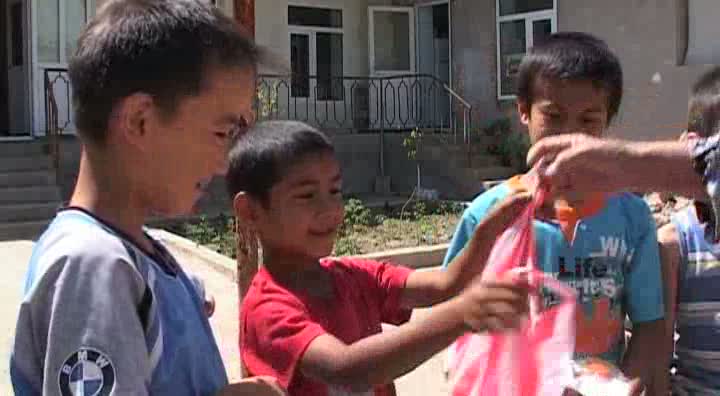Ferghana Valley Lawyers Without Borders
NGO Directory, 27 October 2011
Address:
209, Kurmandjan Datka Street
Osh
Kyrgyzstan
Tel: +996 3222 4 55 97
Fax: +996 3222 2 50 58
Email: fvlawyers@ktnet.kg
Web: www.fvlawyers.org.kg
NGO Directory, 27 October 2011
Address:
209, Kurmandjan Datka Street
Osh
Kyrgyzstan
Tel: +996 3222 4 55 97
Fax: +996 3222 2 50 58
Email: fvlawyers@ktnet.kg
Web: www.fvlawyers.org.kg
Findings of surveys commissioned by UNHCR, Bishkek 2009.
Two decades after the disintegration of the Soviet Union, thousands of people in former Soviet republics like Kyrgyzstan are still facing problems with citizenship. UNHCR has identified more than 20,000 stateless people in the Central Asian nation. These people are not considered as nationals under the laws of any country. While many in principle fall under the Kyrgyz citizenship law, they have not been confirmed as nationals under the existing procedures.
Most of the stateless people in Kyrgyzstan have lived there for many years, have close family links in the country and are culturally and socially well-integrated. But because they lack citizenship documents, these folk are often unable to do the things that most people take for granted, including registering a marriage or the birth of a child, travelling within Kyrgyzstan and overseas, receiving pensions or social allowances or owning property. The stateless are more vulnerable to economic hardship, prone to higher unemployment and do not enjoy full access to education and medical services.
Since independence in 1991, Kyrgyzstan has taken many positive steps to reduce and prevent statelessness. And UNHCR, under its statelessness mandate, has been assisting the country by providing advice on legislation and practices as well as giving technical assistance to those charged with solving citizenship problems. The refugee agency's NGO partners provide legal counselling to stateless people and assist them in their applications for citizenship.
However, statelessness in Kyrgyzstan is complex and thousands of people, mainly women and children, still face legal, administrative and financial hurdles when seeking to confirm or acquire citizenship. In 2009, with the encouragement of UNHCR, the government adopted a national action plan to prevent and reduce statelessness. In 2011, the refugee agency will help revise the plan and take concrete steps to implement it. A concerted effort by all stakeholders is needed so that statelessness does not become a lingering problem for future generations.
UNHCR was monitoring the returns of refugees and other displaced people to southern Kyrgyzstan as tens of thousands of people headed back to their communities. Violent clashes in Osh and other cities in southern Kyrgyzstan earlier this month had sent an estimated 300,000 fleeing to the countryside, while 100,000 had fled across the border into Uzbekistan.
Days after the attacks, Kyrgyz authorities were still trying to restore law and order in the south, where they reported that some 180 people were killed and 1,900 injured. Many of the internally displaced have been staying with host families with many also sleeping rough. In Uzbekistan, authorities reported more than 50 sites hosting refugees in the border provinces of Andijan, Ferghana and Namangan. Some refugees were staying in schools and other public buildings.
UNHCR has provided more than 300 tonnes of emergency assistance in a series of relief flights over the past week, working with the concerned governments and local partners in sometimes hazardous conditions.

